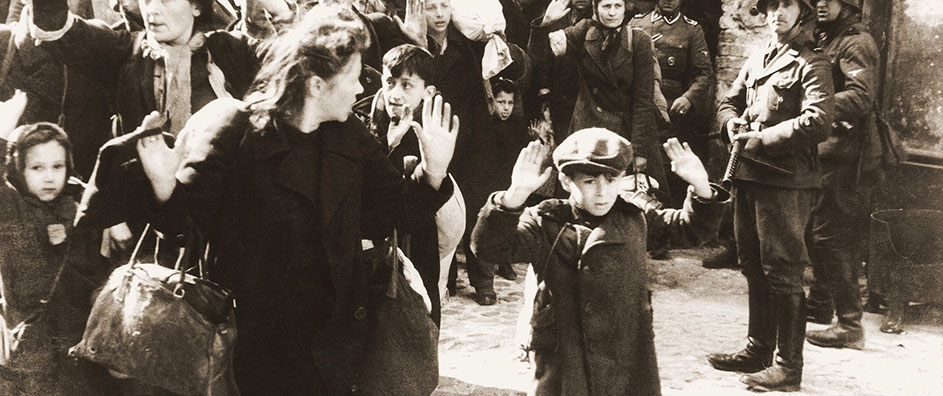The views expressed in our content reflect individual perspectives and do not represent the authoritative views of the Baha'i Faith.
The Revelation, of which Baha’u’llah is the source and center, abrogates none of the religions that have preceded it, nor does it attempt, in the slightest degree, to distort their features or to belittle their value. It disclaims any intention of dwarfing any of the Prophets of the past, or of whittling down the eternal verity of their teachings. It can, in no wise, conflict with the spirit that animates their claims, nor does it seek to undermine the basis of any man’s allegiance to their cause. . . . Unequivocally and without the least reservation it proclaims all established religions to be divine in origin, identical in their aims, complementary in their functions, continuous in their purpose, indispensable in their value to mankind. – Shoghi Effendi, The World Order of Baha’u’llah, pp. 57–58.
 The first and only time I ever visited Jerusalem was in December, 2000. There, I presented a paper at the Hebrew University of Jerusalem, where an international academic conference was being held. Since most of the audience, apparently, were Jewish professors and graduate students, I decided to open by offering a Baha’i perspective on Judaism. So I simply took the last sentence in the passage above, and substituted the word, “Judaism”:
The first and only time I ever visited Jerusalem was in December, 2000. There, I presented a paper at the Hebrew University of Jerusalem, where an international academic conference was being held. Since most of the audience, apparently, were Jewish professors and graduate students, I decided to open by offering a Baha’i perspective on Judaism. So I simply took the last sentence in the passage above, and substituted the word, “Judaism”:
Unequivocally and without the least reservation it [the Baha’i Faith] proclaims [Judaism] to be divine in origin, identical in [its] aims, complementary in [its] functions, continuous in [its] purpose, indispensable in [its] value to mankind.
I did not talk about the Holocaust then, but I’d like to say a few words now. David Langness, Managing Editor of BahaiTeachings.org, has written an article on the Holocaust: “Remembering the Holocaust—and Preventing More of Them” (January 26, 2015). The message: Never forget. Never again.
I was asked recently, “Why did God allow the Holocaust?” This is my brief—and inadequate—answer:
1. The question—“Why did God allow the Holocaust?”—is ill-posed. The real question should be: “Why did man allow the Holocaust?”
2. How religion explains evil is called “theodicy” (the “justice of God”). Again, the term is ill-phrased, for what we are really talking about is the “injustice of man.”
3. God did not cause the Holocaust.
4. Satan did not cause the Holocaust. (Satan is a personification of evil—and therefore is a principle, not a principal.)
5. Nature did not cause the Holocaust.
6. Man did cause the Holocaust—by acts of by acts of injustice and apathy.
7. To blame God for the Holocaust is to shift the blame from man to God.
8. To blame Satan for the Holocaust is to shift the blame from man to Satan.
9. To blame man for the Holocaust is proper and necessary.
10. God will not prevent future holocausts.
11. Satan will not prevent future holocausts.
12. Nature will not prevent future holocausts.
13. Man can prevent future holocausts—by acts of justice and empathy.
14. Man must prevent future holocausts—by acts of justice and empathy.
15. To prevent future holocausts, man must act collectively as well as individually.
16. True theodicy (the “justice of God”) will prevail when man, collectively as well as individually, acts according to God’s principles of justice, as revealed in the holy books.
17. Baha’u’llah distinguishes clearly between the will of God (“His law”) and the will of man:
And now, concerning thy question regarding the creation of man. Know thou that all men have been created in the nature made by God, the Guardian, the Self-Subsisting. Unto each one hath been prescribed a pre-ordained measure, as decreed in God’s mighty and guarded Tablets. All that which ye potentially possess can, however, be manifested only as a result of your own volition. Your own acts testify to this truth. . . .
Men, however, have wittingly broken His law. Is such a behavior to be attributed to God, or to their proper selves? Be fair in your judgment. Every good thing is of God, and every evil thing is from yourselves. Will ye not comprehend? This same truth hath been revealed in all the Scriptures, if ye be of them that understand.
Every act ye meditate is as clear to Him as is that act when already accomplished. There is none other God besides Him. His is all creation and its empire. All stands revealed before Him; all is recorded in His holy and hidden Tablets. This fore-knowledge of God, however, should not be regarded as having caused the actions of men, just as your own previous knowledge that a certain event is to occur, or your desire that it should happen, is not and can never be the reason for its occurrence. – Baha’u’llah, Gleanings From the Writings of Baha’u’llah, pp. 149–150.
18. The will of God is the law of God. As the Ashtad Yasht (Zoroastrian scripture) says: “Yatha ahu vairyo: The will of the Lord is the law of holiness.” (Translated by James Darmesteter (from The Sacred Books of the East, American Edition, 1898.)
19. The Holocaust was not the will of God, because it was against the laws of God.
20. To prevent future holocausts, the will of man must be merged with the will of God.
21. Theodicy, properly understood, can justify God, not man.
22. Each and every victim of the Holocaust was a martyr—a “witness” against injustice.
23. The Holocaust martyrs—as all holocaust martyrs—should be remembered.
24. While their martyrdoms can never be justified, the Holocaust martyrs can and should inspire consensus and collective actions to prevent futures holocausts.
25. The present-day holocausts can and should command our immediate attention and action as a matter of “common cause.” How best to prevent future holocausts depends, in large part, on how we collectively respond to current holocausts, as Baha’i philosopher, Alain Locke, said at Hampton University on August 18, 1944, in his commencement speech, “Stretching Our Social Minds”:
It is high time, therefore, to stretch our social minds and achieve thereby a new dynamic as well as new alliances in the common fight for human justice and freedom…
The intelligent and effective righting of our racial wrongs and handicaps involves pleading and righting the cause of any and all oppressed minorities. In making common cause with all such broader issues, we shall find that we strengthen, both morally and practically, our own…
That stage is represented by the emergence of the “common-cause” type of movement. In these the racial cause is taken up into the substance of a general program and struggle for common human advance. These new and increasingly powerful causes are interracial and intercultural movements in which the full significance and force of interracialism for the first time comes to full flower. They are such movements where people of different race and cultural groups work together not as representatives of particular groups but as co-workers and collaborators in a common cause in which, however, their special group interests are soundly and usefully incorporated.
This proposed Baha’i theodicy—set forth in 25 theses—is meant to stimulate thought and action. I invite better explanations—and more effective solutions and calls to action.
You May Also Like
Comments

















As for prayer, please see my two BahaiTeachings.org articles: “How Baha’i Prayer Works” (June 20, 2014) and “Baha’i Prayer: With a ...Little Help from My Friends” (July 1, 2014). I also have a forthcoming article (awaiting David Langness' edit) called "The Power of Contentment," with a newly authorized translation of a prayer by Baha'u'llah that states, in part:
"O God, my God! I yield Thee thanks at all times and render Thee praise under all conditions.
In prosperity, all praise is Thine, O Lord of the Worlds, and in its absence, all gratitude is
Thine, O Desire of them that have recognised Thee!
In adversity, all honour is Thine, O Adored One of all who are in heaven and on earth, and in affliction, all glory is Thine, O Enchanter of the hearts of those who yearn after Thee!"
You can read the rest of this enchanting, spiritually uplifting prayer when "The Power of Contentment" goes online.
Please understand that my own understanding is quite limited, but I do the best that I can with it, according to my capacity, and simply offer the few insights that I am able to offer.
I'll check out the articles you suggested and keep on plugging away at this!
My questions are many, so just a few; we are all created with a specific portion given to us by God. Is this just a spiritual portion? Or does it entail material things too? If we pray for something and receive it is it God's will for us or are we just lucky? Do bad things happen because I am not living wholly in the Word of God? I could go on and on.
Your article helps me to understand Justice much better and how we as Baha'is can help bring this about. Man's injustice to man is immense and covers so ground it's mind boggling. And that is what amazes me all the time about the Faith; how it gives us a completely new way of looking at things.
Emily
Your visit to Jerusalem at the time of the Second Intifada shortly before the bombing of a Haifan bus (16 victims) not far from the Baha'i World Centre coincides with my pilgrimage less than a year later. On a happier note, I had been assured by senior Baha'is that if one prays for a spouse during pilgrimage at the tomb of Bahiyyih Khanum one' s prayer will be fulfilled; in my case it came true within one year and we now have two sons - Eddie who's nearly 12 and Amin, nearly ...six. Already in my forties at that time i thought I'd better hurry on over from my base in China but the air tickets had tripled in cost due to hostilities in the Holy Land; an exception was Uzbekistan Airlines - $500 return (Beijing-Tel Aviv) with a stop over in Tashkent whose new airport I seemed to have all to myself along with the Soviet era plane taking me west.
Coincidences abound in that I too was invited to speak in Israel but in my case Haifa and Tel Aviv, as well as Jerusalem, appeared on my itinerary. The Universal House of Justice gave me special permission to teach the Faith throughout Israel provided I did so only in its Esperanto clubs, in the Esperanto language invented by a Jew and only in response to questions arising during my talks on the Esperanto movement in Australia, American Samoa and Western Samoa. I've been told, rather vaguely and I haven't researched, that the Guardian promised Ben Gurion that Baha'is would not proselytize in Israel
Baha'i love.
Paul
PS This amateur has composed several copyright and fee free works that touch on the Holocaust. That they have passed the arduous requirements of Baha'i review is a matter I take some pride in, in a working sense of the word - pride. My newest work
'PROOF - for the lay person' also addresses issues surrounding the Holocaust. Perhaps a phrase or two therein might assist your scholarship?